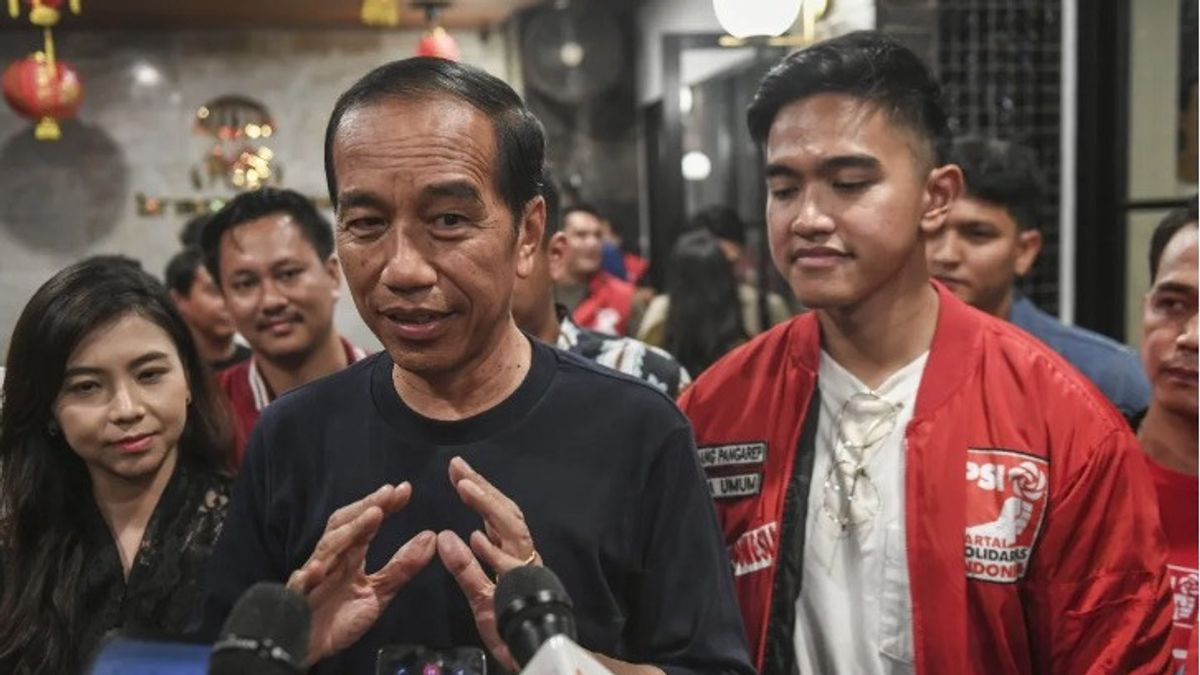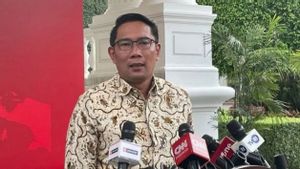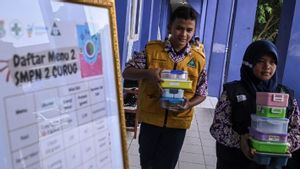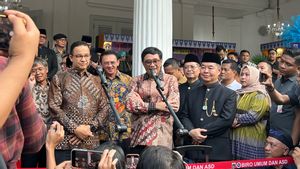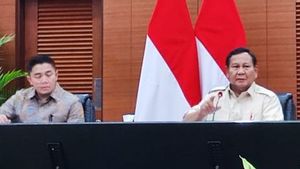JAKARTA The general election drama is still continuing. Currently, the public has been surprised by the sudden increase in the votes acquired by the Indonesian Solidarity Party (PSI).
On Sunday (3/3/2024), PSI's vote was at 3.13 percent or 2,403,367 votes. The number of votes from the party led by Kaesang Pangarep has gained attention because it experienced a significant increase in just one day, after previously only at around 2.8 percent.
Thus, PSI only needs less than one percent of the vote, to be precise 0.87 percent of the vote, to reach the four percent parliamentary threshold. If successful in reaching the threshold, then for the first time the party led by President Joko Widodo's youngest son can occupy the DPR seat in Senayan.
The surge in votes experienced by PSI is in the spotlight. There are allegations of inflating votes for this 'young boy' party. This suspicion arose because there was a difference in the results of PSI's vote between the KPU Sirekap and the C1 Plano model form occurred in a number of polling stations (TPS).
Realizing that the party he built became a public discussion, PSI Deputy Chairman of the Board of Trustees Grace Natalie asked all parties to wait for the final results from the KPU. He emphasized that currently the recapitulation of votes is still ongoing.
"We'll just wait for the results of the KPU's final calculation. Don't lead an opinion that misleads the public. What's unnatural is if there are parties who try to lead opinions by questioning this," Grace said in a written statement, Saturday (2/3).
The KPU has not yet responded to this issue. In fact, the KPU's explanation is urgently needed to defuse polemics in the community. Social Political analyst Karyono Wibowo said that the KPU and survey institutions are required to provide a detailed explanation to the public if PSI's votes are later reached four percent.
"The KPU must explain in detail related to the surge in PSI votes that are suspicious of the people, so far the KPU's explanation is not detailed," Karyono said when contacted by VOI.
Karyono also reminded that so far the results of quick calculations have always been precise, because the difference in the results of the KPU calculation with a very thin quick count, which is only around 0.1 to 1 percent if done in accordance with the correct survey case.
Referring to the fast count data in a number of survey valleys, PSI is predicted not to qualify for Senayan, because the vote acquisition is in the range of 2.6 to 2.8 percent and the maximum error margin is one percent with a sample of 3000 polling stations.
According to Karyono, this can also cause turmoil because it involves the credibility of institutions, both survey institutions and the KPU.
"The PSI's quick count vote is the highest at 2.8, let's say it's up one percent, that's only 3.8 percent, so it's not up to four percent," Karyono explained.
"If later there is a PSI vote reaching a four percent threshold, it can cause chaos and people do not believe in survey institutions and the KPU," he added.
SEE ALSO:
Finally, he asked the KPU not to underestimate PSI's vote problem, which experienced a significant spike. Moreover, this issue has been in the spotlight from ordinary people to political elites.
"KPU, don't take this as a trivial matter, you have to explain this in detail, as well as possible, as clearly as possible why this happened. If there is an intention to inflate PSI's voice then it is dangerous, it can be chaotic. It can further confirm, confirm allegations of child love operations," he concluded.
Meanwhile, Executive Director of the Voxpol Center Research and Consulting Pangi Syarwi Chaniago tried to analyze what happened with PSI votes. According to him, the number of votes was very different from the quick count results released by almost all survey institutions.
Pangi said the number of increases was not small because the percentage was almost equivalent to two million votes. He also questioned the source of the vote.
In addition, PSI's significant vote spike occurred, and was different from the general quick count results for the first time during the General Election and Presidential Election. In fact, according to Pangi, the quick count has been considered a control or comparison of the KPU's vote count results.
"Finally we asked, after the reform, there was never a quick count that missed the real count. This time it happened," he said.
The vote counting system for election results in Indonesia, which is carried out through a tiered recapitulation process, is considered by Pangi to allow manipulation. The manipulation practices can occur in various forms.
For example, the sale and purchase of votes or trading votes by parties or legislative candidates who are confirmed to have failed to pass the parliamentary threshold. It can also be done by certain parties who have strength in the government.
Every level of our recapitulation level allows manipulation, vote inflation, vote trading. There is an elite strong man who plays very brave to change the C1 Plano, "said Pangi.
What makes this problem even more complicated according to Pangi, the organizers and supervisors of the Election do not carry out proactive attitudes and seem silent.
"The question is, who wants to prove it? How do people who don't get paid prove it like us? How do we tell them to prove it," said Pangi.
The English, Chinese, Japanese, Arabic, and French versions are automatically generated by the AI. So there may still be inaccuracies in translating, please always see Indonesian as our main language. (system supported by DigitalSiber.id)
